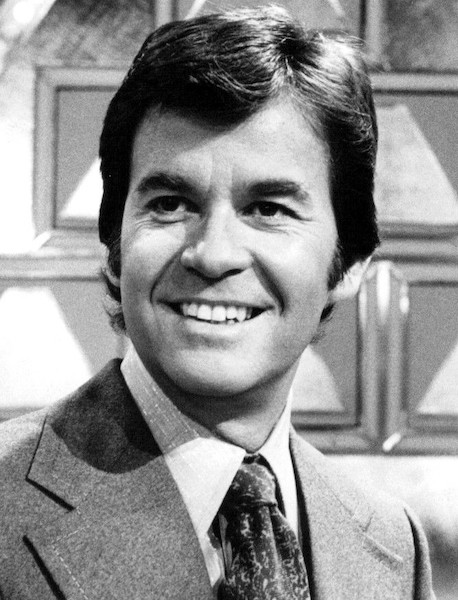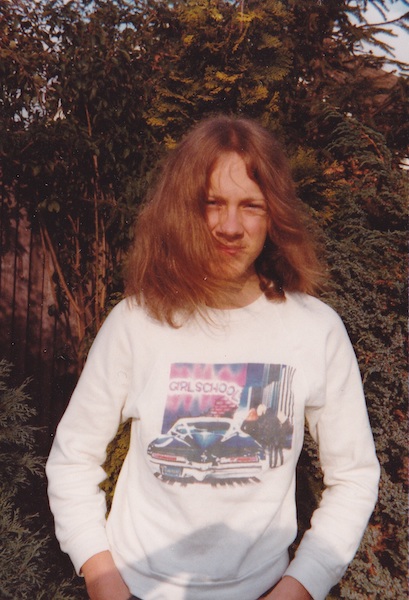Article 27 : A brief history of Payola and a day out in 1983
A rather unusual thing happened at the country music WCMS Radio station in Norfolk, Virginia on November 24th, 1959: Four DJs played one song continuously for 24 hours. The record was a Turkish song called Pacalafaca and it was played 320 times in one day to prove that constant airplay could not make a hit. The record of course wasn’t a hit, no doubt firstly because their audience liked country music – not Turkish - and secondly because they were sick to death of it by the end of the day. The result of their publicity stunt was that all four DJs were fired. This in itself was another publicity stunt as all four were quietly re-instated in the next few days.
賄賂の略史と1983年のとある日の外出
1959年11月24日。ヴァージニアのノーフォークにあるWCMSというカントリー・ミュージックのラジオ局で、異常事態が発生した。4人のDJが、同じ曲を24時間ぶっ通しかけ続けたのだ。そのレコードは、「Pacalafaca」というトルコの曲で、1日で320回もプレイされ、ずっとオンエアをしてもヒットにはつながらないという証明になった。そもそもリスナーはトルコ音楽ではなくカントリー・ミュージック好きだったし、それに彼らはその日の終わりには、この曲にウンザリしていたのだ。結局このパブリシティのギミックの結果、4人のDJ全員が解雇になった。まあそれ自体もギミックだったのだが。というのも、数日のうちに、4人はまた全員再雇用されたのだ。
All this was done in protest at the payola scandal that was currently rocking the US music business, that being the money given to DJs, by a record label, to play a certain record on their radio or TV shows to help get it into the charts and back in the 50’s almost every label and DJ were doing it. It is of course, a bribe and therefore illegal and although it had been pretty much going on from when radio stations first started broadcasting the sales charts (which in its early years were based on sales of sheet music) nobody really cared about it very much but that all changed with the Rock and Roll era and to find out why Rock and Roll brought it to prominence, we have to go back to before World War II.
これらはすべて、DJへの賄賂に関するスキャンダルに抗議するものだった。レコード・レーベルがDJに金を払い、ラジオやテレビの番組で特定の曲をかけてもらうことでチャートインを狙う。50年代にはほぼすべてのレーベルやDJがこれを行っていた。これは賄賂であるから、当然違法であるが、ラジオ局がセールスチャートを発表するようになった頃(最初の頃は楽譜の売り上げに基づいたチャートだった)からの習慣だったので、誰も気にしていなかったのだが、ロックンロールの時代からこれが顕著になってきた。第二次世界大戦以前にまで話を遡ろう。
Pacalafaca. Try listening to this 320 times and see if you’d like to buy it
Pacalafaca. これを320回聴いて、買う気になるか試してみると良い。
https://www.youtube.com/watch?v=y6XAVi1btW0&ab_channel=theCheesenOnionsASCAP and BMI
In 1939, there was only one performing rights organisation in the USA and that was ASCAP – The American Society of Composers, Authors and Publishers. It was founded on February 14th, 1914 by Victor Herbert and was essentially to protect the music of the Tin Pan Alley writers. When radio started to become very popular in the 1920’s, this became a very useful source of income for ASCAP and its members, as they started to collect licence fees from all the radio stations but they became greedy as more stations opened, increasing their rates 400% in the 1930s. Bear in mind that his was just after the great depression and the economy was still in a desperate state so by 1939, the broadcasters had had enough of constant increases in their fees and formed their own performing rights group called Broadcast Music, Inc. or BMI.
ASCAPとBMI
1939年当時、アメリカには演奏権に関する組織が一つしかなかった。ASCAP – The American Society of Composers, Authors and Publishersである。ASCAPは1914年2月14日、ヴィクター・ハーバートによって設立され、基本的にティン・パン・アレーの作家たちを守ることを目的としていた。1920年代にラジオが人気になると、ラジオ局からライセンス・フィーを徴収するASCAPやそのメンバーたちは、簡単にお金を得ることができた。ラジオ局が増えてくると、彼らは強欲になり、1930年代、そのレートは400%にまで上がった。大恐慌直後のことである。だから1939年になる頃には、放送局はフィーの上昇にうんざりし、自分たちで演奏権を管理するグループを立ち上げた。それがBroadcast Music, Inc=BMIである。
This didn’t bother ASCAP very much because they owned the great songwriters of the time such as George Gershwin and Irving Berlin as well as the entire film industry while BMI signed the lesser profitable black music artists and Country singers. Throughout the war, and up until the mid-fifties, the two companies lived side-by-side happily but then Rock and Roll happened. County and Rhythm & Blues fused to create Elvis who sang black music and sold millions of records to teenagers who wanted to hear their hero on the radio. The radio stations happily obliged and it soon followed that Chuck Berry, Little Richard, Fats Domino and a hundred other black artists started to have success, receive more airplay and that meant only one thing for ASCAP, a huge loss of revenue and by 1958, many stations were playing BMI’s artists for 80% of the airtime.
ジョージ・ガーシュインやアーヴィング・バーリンといった偉大なる作曲家や映画産業も抱えていたASCAPは、これを気に留めなかった。一方のBMIは利益の劣るブラック・ミュージックのアーティストやカントリーのシンガーと契約していた。大戦中から50年代中盤まで、2つの会社は仲良く共存していたが、そこにロックンロールが現れた。カントリーとリズム・アンド・ブルースが融合し、エルヴィスが生まれた。彼はブラック・ミュージックを歌い、ラジオのヒーローを聴きたがるティーンエイジャーたちに、何百万枚ものレコードを売った。ラジオ局は彼らの期待に応え、さらにチャック・ベリー、リトル・リチャード、ファッツ・ドミノ等、たくさんの黒人アーティストがこれに続いた。彼らの作品ばかりがラジオで流れるということは、ASCAPの収入が減るということ。1958年頃には、放送されるアーティストの80%がBMIの所属となった。
Suddenly in November 1959, just after the American Quiz show scandals where popular contestants were given the answers to the questions before the show so they were guaranteed to win, the House Subcommittee on Legislative and Foreign Commerce (HSLFC) announced they have received information that led them to believe there was bribery in radio programming and that they were going to investigate the allegations: The documents and letters of supporting evidence of payola had been delivered to HSLFC by an ASCAP songwriter. In December, the Federal Trade Commission (FTC) accused Elvis’ record label RCA Victor and two others, London and Cameo-Parkway, of making payments to DJs although the charges were later dropped. There was however a simultaneous investigation by the State of New York and on 19th May 1960, a court charged eight men of accepting a total of $116,580 in bribes. One of those men was Mr Rock and Roll himself, Alan Freed.
1959年11月、出場者が事前に答えを教えてもらっていたというアメリカのクイズ・ショウのスキャンダル発覚後、HSLFCは突如ラジオ番組に関する賄賂の存在について信じるに値する情報を得たとし、その申し立てを調査すると発表した。ASCAPの作家から、ラジオ曲への賄賂の証拠となる文書と手紙がHSLFCに届いたのだ。12月、FTCはエルヴィスのレーベルであるRCAビクターとロンドン、カメオ・パークウェイをDJへの賄賂で告発するが、それは後に取り下げられた。しかし同時にニューヨーク州の調査が行われ、1960年5月19日、8人に対し合計116,580ドルの賄賂を受け取った罪が課せられた。その中の1人が、ミスター・ロックンロールその人、アラン・フリードだった。

アラン・フリード宣材写真
Freed was the man who coined the term Rock and Roll for the style of music we know today and the establishment hated him. Freed stood for rebellion, the young generation and the uniting of black and white people through music. As far back as 1952, he put on concerts featuring black and white performers and the shows sold out to black and white kids but the media called him a ‘race-mixer’ and a ‘nigger-lover’. When Rock and Roll really kicked in, he became an enemy of the major labels and particularly ASCAP because of his support of independent labels and BMI which led to ASCAP losing sales along with airplay time. At the same time Rock and Roll was also branded obscene by parents, churches, and ‘all decent people’; The New York Daily News even called the music “an inciter of juvenile delinquency” and pointed to Freed as it’s chief offender. Freed didn’t care but given that the majority of record sales were now to teenagers and because of his power over the younger generation – the record-buying public - he had to go.
フリードはロックンロールという言葉を発案した人物で、権威には嫌われていた。フリードは反抗、若い世代、音楽を通じた黒人と白人の結束を支持していた。1952年、彼は黒人と白人のアーティストを共演させ、ショウは黒人と白人のキッズたちで売り切れとなったが、メディアは彼を「人種ミキサー」、「ニガー・ラヴァー」などと揶揄していた。ロックンロールが人気になると、彼はメジャー・レーベル、特にASCAPの敵となった。彼がインディペンデントのレーベルやBMIをサポートしたことで、ASCAPの収入、エアプレイ時間が減少したからだ。同時にロックンロールは親たちや教会といった「まともな人たち」に猥雑なものとされ、ニューヨーク・デイリー・ニュースはそれを「非行の先導者」と呼び、フリードをその主犯と名指しした。フリードは気にしなかったが、レコードの購買層の大半を占めるのはティーンエイジャーであり、彼の若い層への影響力を考えると、やらざるをえなかった。
At the time of the investigation, Freed was working WABC Radio in New York and the station sent an affidavit around to all their DJs asking them to sign it. It stated that the signatories had not taken any bribes for playing records but Freed refused to sign it and informed the press that what broadcasting called Payola, the Government called Lobbying. This did not go down well with the establishment as Freed by saying this, had effectively accused all members of congress and US government officials of taking bribes. It was the very excuse they needed to make an example of him and he was accused of 26 charges of commercial bribery totalling $30,000. In December 1962, he received a six-month suspended sentence and a $300 fine but that was nothing compared to the legal bills he had acquired during the trial. He continued to broadcast finding a job in Los Angeles at KDAY but they refused to let him promote concerts and not long after, was then charged with Income Tax evasion for $47,920 on income received between 1957 and 1959. He moved to Miami where he worked briefly for WQAM radio before going back to Los Angeles and KNOB radio but by now he was a chronic alcoholic which led to his death there on January 20th, 1965. He was 43 years old.
捜査時、フリードはニューヨークのWABCラジオで働いていた。ラジオ局はすべてのDJに宣誓供述書を送り、そこにサインするよう依頼していた。サインをしたものは、レコードをかけることで賄賂を受け取らないという内容であったが、フリードはサインを拒否。プレスに対し、放送では賄賂と言われるが、政府の場合はロビー活動と言われると発言した。フリードは、議員やアメリカ政府の職員たちは、賄賂を受け取っているのだと言った訳だから、まずい内容だったと言える。彼は見せしめとして、26件、計3万ドルの賄賂を受け取ったかどで告発された。1962年12月、6ヶ月の執行猶予と300ドルの罰金を言い渡されたが、これは裁判にかかった費用に比べれば微々たるものだった。彼はロサンゼルスのKDAYで放送の仕事を見つけることができたが、コンサートのプロモーションはさせてもらえなかった。フリードはその後まもなく1957年から1959年の間の収入47,920ドルの脱税で告訴された。それから彼はマイアミに引っ越し、短期間WQAMラジオで働いた後、ロスに戻りKNOBに勤務したが、その頃にはアルコール中毒になっていた。結局それが原因で、彼は1965年1月20日、43歳の若さでこの世を去った。

ディック・クラークの宣材写真
By contrast, the other important DJ at the time of the scandal, Dick Clark, was treated leniently because he bowed to the system. It could be said that he was more influential than Freed as he hosted his own TV show with an average viewing figure of ten million people every week, often peaking at twenty million. The majority of Clark’s guests were white representing the nicer side of Pop music and he often mixed in interviews with old school entertainers during the show that Mums and Dads liked. When his employer, the American Broadcasting Company (ABC) asked him to sign an affidavit about payola, Clark refused but agreed under pressure from the ABC, agreed to sell his shares in the 33 music companies that he had and he also had his lawyer draw up a more favourable affidavit that he did sign. He also relinquished the song writing credits he had for over 150 songs, many of which were aired on his TV show. At one point, in court, he even admitted to accepting fur and jewellery from a record company president so it was clear that the man was guilty of taking payola, if not as obviously as cash in a brown envelope but he gave the impression that Rock and Roll was just a business interest and the court concurred. "Obviously you're a fine young man," is how the committee chairman, Oren Harris described him adding "I don't think you're the inventor of the system, I think you're the product." Unlike Freed, Clark survived and continued his career without blemish.
対照的に、当時のスキャンダルに見舞われた重要なDJ、ディック・クラークは、システムに屈した結果、寛大に扱われた。彼は毎週一千万人から、時に二千万人が見るテレビ番組のホストを務めていたから、フリードよりも影響力があったと言えるかもしれない。クラークの呼ぶゲストの多くは、ポップミュージックのお行儀の良い面を代表する白人たちで、時に両親たちのお気に入りである古いエンターテイナーたちのインタビューも交えていた。彼の雇い主であるABC放送が、彼に賄賂に関する宣誓供述書にサインするよう求めた時、彼は拒否したものの、ABCの圧力により、彼が持っていた33の音楽会社のシェアを売ることに同意。さらに彼は弁護士を使ってもっと好意的な宣誓供述書を書かせ、それにサインした。また彼は彼が持っていた、そして番組でよくかけていた150曲以上の権利を放棄した。彼はレコード会社の社長から、毛皮や宝石を受け取ったことも認めており、封筒に入った現金ほど露骨ではないにしても、賄賂を受け取っていたことは明らかだった。だが、彼はロックンロールはただのビジネスであると印象づけ、裁判官もそれに同意した。裁判官であったオーレン・ハリスは彼を「間違いなく善良な若者」と描写し、「君はこのシステムの発明者ではなく、産物である」と付け加えた。フリードと異なり、クラークは生き残り、名声を損なうことなくキャリアを続けることができた。
It would be nice to write now that the hounding of Alan Freed had one good outcome, namely the removal of payola from the music industry but it is not to be. In fact, it expanded and grew into its own business using loopholes in the law and other methods to ensure radio play and hyped sales that still continue and evolve to this day. I witnessed this first hand in the early eighties.
アラン・フリードに対する追及が、音楽業界から賄賂を一掃することになったと言えれば良かっただろう。だが、実際はそうならなかった。結局は、今もそれは拡大し続け、法の抜け道を使い、他の方法でラジオでの放送を確約させ、セールスを増加させているのだ。80年代初期、俺はこの目で見てきた。
A Day Out In 1983
Around this time I was fortunate in that even though I was only a roadie, I was allowed and encouraged to go to meetings between the management and record company as well as many social functions usually reserved for band and management, this gave me a great insight into how the business worked. One lovely sunny Friday, I was invited by someone at one of the major record companies to go around with him for the day, visiting some of the record shops to see how a new release was selling of a band I was close to. I forget the gentleman’s name so we’ll call him Jim for convenience and as we set off with a car-boot full of 12” singles - half of the new release and half made up of the big selling label’s artists - Jim started to explain to me his role in the music business. Jim was a ‘plugger’, a promotion person whose job it was to try and get the label’s records in the charts. Jim was not an employee of the label, he was freelance but having said that, worked exclusively for said label. This meant that technically, if Jim did anything illegal, the label would not be responsible for what he did and could deny any wrongdoing. Jim knew this and happily accepted it because the label paid him a lot of money.
1983年のとある日の外出
当時、俺は単なるローディであったが、幸運だった。マネジメントとレコード会社のミーティングや、他の様々なバンドとマネジメントのための会合に出席することができ、ビジネスがどのように回っているのかを深く知ることができたのだ。ある晴れた金曜日、メジャー・レコードのある人物について、俺に近しいバンドの新作の売り上げをチェックすべく、レコード屋を回ることになった。彼の名前は忘れてしまったので、便宜上ジムとしよう。トランクが新作とレーベルのヒット作の12インチ・シングルでいっぱいの車で出発すると、ジムは音楽業界における彼の役割を説明し始めた。ジムは「熱心な応援者」で、レーベルのレコードをチャートインさせることが仕事のプロモーション担当だった。彼はレーベルの社員ではなく、フリーランスだったが、そのレーベル専属で働いていた。これは厳密に言えば、ジムが何か違法なことをしても、レーベルはその責任を負う必要がないということだ。ジムはそれをわかっていて、容認していた。それだけの給料をもらっていたからだ。
Our first stop was well-known record chain in South London where Jim removed a copy of the new 12” single from the boot and five by other artists. Greeting the manager with a hearty handshake and a big smile, Jim introduced me and we were led into the office at the back of the store. The manger asked Jim what he could do for him and Jim explained that he was promoting the new band and would he very kindly help in the usual way: The manager said of course and the deal was done. A quick handshake later, we were on our way to the shop. After a couple of minutes driving, I asked Jim what ‘the usual way’ was and he explained that shops we were visiting were all chart shops meaning that they contributed sales figures to the Top 75 album and singles charts every week. When the shop sold one of the best-selling artists’ records which he had given for free, the shop would register that it was for the sale of the new band’s single. It’s important to note at this point that the singles given for free, although best sellers, were going down the charts and unlikely to rise again so the artists who recorded the free singles, did not lose a chart placing. The effect of this little deal can be summed up like this; The shop gets five records it can sell easily for free and therefore make a big profit and the new artist appear to be selling a lot of singles when they actually aren’t, thereby getting hyped into the charts.
最初にサウス・ロンドンの有名なレコード屋のチェーン店に行き、新作の12インチシングル1枚と、他のアーティストの5枚を取り出した。マネージャーと心のこもった握手をし、笑顔で挨拶し、ジムが俺を紹介すると、店の奥のオフィスへと案内された。マネージャーがジムに何をすれば良いのかと尋ねると、ジムは新しいバンドをプロモーションしているので、いつものように助けてもらえないかと言った。マネージャーはもちろんと言って、話はまとまった。さっと握手をすると、俺たちは次の店へと向かった。車の中で、ジムに「いつものように」とはどういうことかと尋ねると、今日行く店は、すべてチャート・ショップとのことだった。つまり、彼らは毎週アルバムやシングルのTOP75チャートに売上枚数を提供しているということだ。店が、彼がただであげたベストセラーのアーティストの作品を売ると、店はそれを新しいバンドの売り上げとして登録する。この時点で、ベストセラーのアーティストはすでにチャートから落ち始めており、今更上昇するはずもないから、特に問題はない。このちょっとしたディールは、次のように要約できる。店は簡単に売れるレコードを5枚、ただで手に入れて、大きな利益を得られる。新人のアーティストは、実際は売れてもいないシングルが売れたことになり、結果チャートインすることができるのだ。
We visited seven stores in that one day and each store had the same arrangement. Some stores were selective about the singles they wanted for free but most didn’t care. Our last stop was at a radio station where Jim took one single from the car boot and several new band T-Shirts which the DJ happily accepted and promised that the single would be played. On the way back to the car, Jim explained that DJ’s preferred T-Shirts, sweatshirts, restaurant coupons and other useful items rather than free records. Jim would continue to do this for one week around London after which he would drive north and go to other major cites offering the same deal. Jim wasn’t the only plugger doing this either. At that time, every record company had someone doing the same thing.
俺たちはその1日で7件のレコード屋を回り、すべての店で同じアレンジをした。もらうシングルにうるさいところもあったが、何でも良いという店の方が多かった。最後にラジオ局に行った。ジムはトランクからシングル1枚と、新人バンドのTシャツを何枚か持っていくと、DJはうれしそうにそれを受け取り、シングルをかけると約束した。車に戻る途中、ジムはDJはレコードよりもTシャツ、スウェット、レストランのクーポン等、実用的なものを好むと言っていた。ジムはロンドン周辺で1週間ほどこれを続け、その後北に向かい、他の大都市で同じディールをした。ジムだけが、唯一の熱烈な応援者だった訳ではない。当時、どのレコード会社も同じことをする人物を雇っていたのだ。
That was forty years ago though and these days there are very few record shops left so has hyping and payola gone for good? No, it hasn’t but the method has changed. In 2002, Epic Records in America offered Celine Dion fans the chance to fly to Las Vegas to hear her perform and meet her. The competition could only be entered by listening to any of the thirteen stations owned by the Infinity Broadcasting company and her latest single - Goodbye’s (the Saddest Word) – was used to promote the competition; it eventually reached No.27 on the Billboard chart. However, in 2005 it was revealed that Infinity only had this competition because they had agreed to add the single to their playlist which was technically payola. Epic record’s parent company Sony BMG were fined ten million dollars and the Warner Music Group were fined a similar amount for similar practices in November the same year.
これは40年前の話であるし、今はレコード屋も少なくなったから、こういったハイプや賄賂は消滅したのだろうか?いや、そうではない。ただ方法が変わっただけだ。2002年、アメリカのエピック・レコードは、セリーヌ・ディオンのファンに、ラスヴェガスに行き彼女の歌を聴き、彼女に会うチャンスをオファーした。これに応募する方法は、Infinity Broadcastingが所有する13のラジオ局で、彼女の最新シングル「グッドバイズ(ザ・サデスト・ワード)」を聴くことだった。結果、この曲はビルボードの27位にチャートイン。しかし2005年、Infinityが、この曲をプレイリストに加えることに同意したから、この企画をやれることになったことが暴露された。これは結局賄賂だ。エピック・レコードの親会社であるソニーBGMは、この件で1千万ドルの罰金を課せられた。同じ年の11月、ワーナー・ミュージック・グループも、似たような件で、同じくらいの罰金を支払う羽目になった。
In the last decade streaming sites, Twitter, MySpace, YouTube, Facebook have become the prime source for music lovers to get their news and listen to new music and the record companies are already finding new ways to exploit it to their advantage. One record label I spoke to a few years back told me that they paid someone to sit at a computer and continuously make comments about their new artist on any accessible social media pages even if the subject on the page was irrelevant. Another person at the company suggested setting up several computers and inventing a machine to click on a YouTube video for one week to increase the views and thereby sending it into the top 25 weekly ranking. Fortunately, this idea was rejected but it probably won’t be long before another company thinks of it and tries it. Major blog sites are targets for record labels and many labels have struck deals with bloggers for invites to parties, tickets, backstage passes, etc to favour their artists. Even iTunes has been questioned. In 2013, Tamar Braxton’s Love & War rocketed to the top of the iTunes chart knocking off Bruno Mars’ hit Locked Out of Heaven and then dropped out of the Top 30, never to return, two days later. How could that happen?
この10年で、ストリーミング・サイトやTwitter, MySpace, YouTube, Facebookが、音楽好きがニュースや新作を聴くメインのソースとなっているが、レコード会社はすでにこれらをうまく利用する手を見つけつつある。数年前、あるレコード会社は、あらゆるSNSに彼らの新人アーティストについて書き込みをする人間を雇っていると言っていた。そのアーティストとは無関係のページにすら書き込みをするのだ。複数のPCを使って自動的に1週間YouTubeの再生ボタンを押し続けて再生数を増やし、トップ25の週間チャートにランクインさせるという案を持つものもいた。幸いこのアイデアは却下されたが、同じことを考えて試す会社は他にもあるかもしれない。メジャーなブログ・サイトもレコード・レーベルのターゲットであり、彼らは自分たちのアーティストを優遇してもらおうと、ブロガーたちをパーティに招待したり、チケットやバックステージ・パスを渡したりしている。iTunesですら怪しまれた。2013年、Tamar Braxtonの「Love & War」という曲が、ブルーノ・マーズのヒット曲「Locked out of Heaven」を抜いて、iTunesチャートの第一位に躍り出たが、2日後にはトップ30から転落。2度とチャートインすることはなかった。こんなことが起こり得るだろうか?
I shall leave you with the last words Jim said to me as we arrived back at the label’s office all those years ago. I thanked him for the day out and for teaching me a few lessons. I also said that I had no idea that payola and hype were still so prominent and he replied “Payola and hype have always been a large part of the music business Glenn and as long as there is a music business, there will be payola and hype.”
最後に、レーベルのオフィスに戻った時、ジムが俺に言った言葉をお教えしよう。俺は1日つきあわせてくれたこと、いくつかのことを教えてくれたを感謝し、そして賄賂やハイプがいまだにこんなに露骨に行われているとは思わなかったと告げた。彼の答えは「いいかいグレン、賄賂とハイプは音楽ビジネスで重要な役割を持ってきた。音楽ビジネスが存在する限り、賄賂もハイプも存在し続けるのさ」だった。

1983年頃の俺(宣材写真ではないよ)
Copyright © 2021 Upp-tone music Co., Ltd. All Rights Reserved.